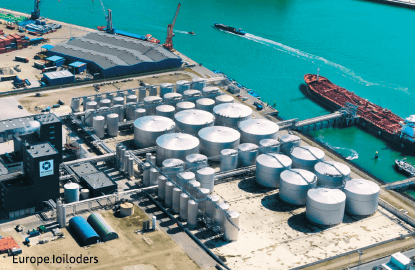
This article first appeared in The Edge Malaysia Weekly, on April 4 - 10, 2016.

THE suspension of the Roundtable on Sustainable Palm Oil (RSPO) certification of IOI Corp Bhd’s palm oil production — which came into effect last Friday — would have really stung the integrated plantation giant.
After all, the company was one of the founding members of the RSPO, and this is the second time it has been suspended for non-compliance of certain principles and criteria.
This time around, the complaint against IOI Corp was made by Aid Environment on April 3 last year regarding its plantation subsidiaries in Indonesia — PT Sukses Karya Sawit, PT Berkat Nabati Sawit and PT Bumi Sawit Sejahtera — for allegedly violating several RSPO principles and criteria. These include no new planting policy published, no challenging time-bound plans, land clearing without IUP (Izin Usaha Perkebunan), fraudulent statement on activity on the ground, no concession boundary filed, encroachment and deep peat clearance.
The time frame of the suspension is undetermined, pending a comprehensive plan of remediation and the implementation of the plan by IOI Corp. The suspension of its RSPO certificate could come as a blow to IOI Corp, given the significant dealings of its downstream business in Europe and the US, say industry experts.
In an email reply to questions from The Edge, IOI Corp says about two-thirds of its speciality oils and fats business is derived from Europe and the US. The speciality oils and fats business contributes 11% to the group’s overall earnings before interest and tax, it adds.
“We are unable to quantify the potential sales loss at the moment, pending our appeal and clarification of the scope and content of the suspension from RSPO,” says IOI Corp on how the suspension will affect its earnings going forward. It is worth noting that the replies were received on the same day that the group met the RSPO complaints panel to discuss and review its action plan.
Based on IOI Corp’s 2015 annual report, resource-based manufacturing, which includes refineries, oleochemicals and speciality oils and fats, contributed 28% to group earnings.
The group’s downstream refining manufacturer, IOI Loders Croklaan, which is a leading supplier of certified sustainable palm oil (CSPO) products in Europe, says in a recent statement that the full suspension of the group’s certificate will have a significant negative impact on the market’s uptake of CSPO.
“It will hurt over 300 RSPO members that are currently taking segregated certificate and mass-balance certificate products and which themselves are committed to change through using physical RSPO-certified oil,” explains its CEO Julian Veitch.

TA Securities Research, in a report, points out, “The suspension of RSPO certification will not be favourable to European and North American customers, who are increasingly erecting barriers to non-certified crude palm oil imports. Note that downstream operation constituted 28% of IOI’s total operating profit in FY2015 and it derived more than 50% of its revenue from Europe and North America.”
CIMB Research estimates that the CSPO premium on IOI Corp’s palm oil is valued at RM58 million based on the company’s guidance that the premium represents less than 0.5% of revenue. “Based on this, the impact on our FY2017 (ending June 30) net profit works out to around 3.5%. However, this does not take into account potential loss of customers or additional costs incurred to purchase CSPO from third parties to fulfil contracted volumes to customers.”
While CSPO premium accounts for only a small portion of IOI Corp’s revenue, a plantation analyst says the actual impact of the suspension is more complicated than just the premium because end-product markets tend to have their own supply and demand structure.
Last Friday, the RSPO released a working paper that offered solutions to the plantation group to mitigate “unintended consequences” to stakeholders within its supply chain. However, it appears that this would come out of IOI Corp’s pockets.
Some of the issues that were addressed include GreenPalm certificates that are sold by a certified mill. IOI Corp would have to buy back oversold GP certificates, if any, beyond April 4, given the suspension.
Also, IOI Corp would now have to buy crude palm oil from a certified mill and sell it to a certified refinery and buy back the refined products to sell to its customers.
Nevertheless, the RSPO complaints panel admits that there could be a problem in the case of IOI Corp’s tailor-made products from its speciality oils and fats refinery in Wormerveer, the Netherlands.
The suspension of IOI Corp’s RSPO certification, however, did not seem to bother its investors because the stock fell a mere 2.4% to RM4.54 last Friday from RM4.65 on March 25, when the suspension was announced.
That said, filings with Bursa Malaysia showed that the Lee family of IOI Group had acquired 6.3 million shares, equivalent to 1% equity interest, on the open market since March 25. This should help prop up the share price.
Save by subscribing to us for your print and/or digital copy.
P/S: The Edge is also available on Apple's AppStore and Androids' Google Play.